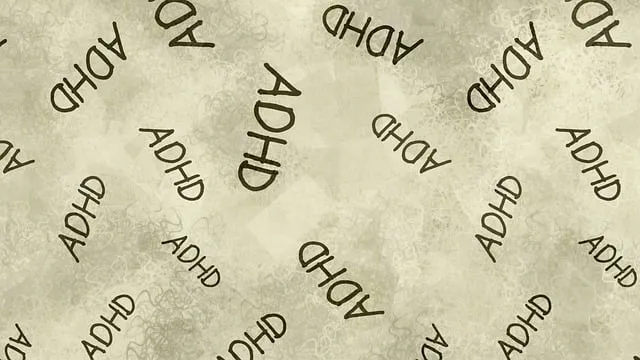The current media portrayal of mental illness is dominated by stereotypes and stigmatized narratives, despite growing awareness. Kaiser Permanente's Aurora training programs have identified these gaps and are empowering content creators through initiatives promoting confidence-boosting and stress-reduction methods. The Aurora Initiative challenges stereotypes by educating media professionals about mental health, leading to more accurate and empathetic storytelling. These programs include evidence-based practices like Mental Wellness Journaling and Crisis Intervention Guidance, fostering emotional intelligence and breaking down barriers toward individuals with mental health challenges. By collaborating with organizations like Kaiser Permanente, the industry can create inclusive and supportive representations of mental illness in media.
In today’s digital era, media representation of mental illness significantly impacts public understanding. However, many portrayals fall short, perpetuating stigma and misinformation. This article explores the current state of mental health depiction in media and presents innovative solutions. We delve into successful initiatives like Kaiser Permanente’s training programs and the Aurora Initiative, which strive for accurate and nuanced representations. By examining challenges and promoting positive impacts, we aim to revolutionize media’s role in fostering empathy and support for individuals facing mental health struggles.
- Understanding Mental Illness Representation in Media: The Current State
- Kaiser Permanente's Approach: Training Programs for a Change
- Aurora Initiative: A Step Towards Accurate Portrayal
- Overcoming Challenges and Promoting Positive Impact
Understanding Mental Illness Representation in Media: The Current State

The current state of mental illness representation in media is a complex and evolving narrative. Kaiser Permanente training programs Aurora have highlighted significant gaps in how mental health conditions are portrayed across various forms of media, from television and film to digital platforms. Despite growing awareness about the importance of accurate representation, stereotypes and stigmatized narratives still dominate many storylines involving mental illness. This perpetuates misconceptions and contributes to the marginalization of individuals living with these conditions.
Understanding mental illness requires a nuanced approach that goes beyond simplistic or sensationalized portrayals. The Mental Wellness Journaling Exercise Guidance emphasizes the need for authentic representations that reflect the diversity of experiences within the mental health community. Confidence Boosting and Stress Reduction Methods, as promoted by various initiatives, can play a crucial role in media production, ensuring that content creators develop characters and narratives that foster empathy and promote positive discussions around mental wellness.
Kaiser Permanente's Approach: Training Programs for a Change

Kaiser Permanente, recognizing the significant impact media representation has on societal perceptions, has taken a proactive approach to challenging stereotypes and promoting accurate mental health narratives. Their strategy revolves around comprehensive training programs aimed at fostering a more nuanced understanding of mental illness in Aurora and beyond. These initiatives focus on educating professionals across various sectors, ensuring they are equipped with the tools to recognize and support individuals struggling with mental health challenges.
The programs emphasize evidence-based practices, including Mental Wellness Journaling Exercise Guidance and Crisis Intervention Guidance, to enhance emotional intelligence. By upskilling employees and community members through workshops and continuous learning, Kaiser Permanente strives to create an environment where emotional intelligence is the norm, breaking down barriers and fostering empathy towards those navigating mental health issues.
Aurora Initiative: A Step Towards Accurate Portrayal

The Aurora Initiative, developed by Kaiser Permanente training programs, represents a significant step towards accurate and nuanced representation of mental illness in media. This initiative aims to challenge stereotypical portrayals and instead offer a more realistic and empathetic perspective. By focusing on providing educational resources for content creators, the program addresses the need for better mental health policy analysis and advocacy within the industry.
Through its comprehensive approach, Aurora Initiative goes beyond surface-level changes, emphasizing the importance of risk assessment for mental health professionals in media settings. It incorporates empathy-building strategies that promote a deeper understanding of various mental health conditions, fostering more authentic and compassionate storytelling. This holistic effort not only enhances the accuracy but also contributes to a more inclusive and supportive representation of individuals grappling with mental illness.
Overcoming Challenges and Promoting Positive Impact

Overcoming challenges in mental illness representation requires a collaborative effort, and organizations like Kaiser Permanente are at the forefront of this movement. They offer training programs, such as those in Aurora, that equip media professionals with the knowledge and skills to portray mental health accurately and sensitively. These initiatives focus on developing communication strategies that foster understanding and reduce stigma. By providing guidance on how to discuss mental wellness through various media formats, they empower journalists, filmmakers, and content creators to make a positive impact.
Through these training sessions, professionals gain insights into the risk assessment for mental health issues, ensuring they handle sensitive topics responsibly. Additionally, exercises like journaling can be introduced to enhance self-awareness and empathy among media workers. This holistic approach not only helps in creating more nuanced narratives but also inspires viewers to prioritize their mental wellness, encouraging open conversations about mental health in society at large.
In conclusion, improving mental illness representation in media is an ongoing challenge that requires concerted efforts from industry professionals. The current state of portrayal highlights the need for more accurate and nuanced storytelling. Organizations like Kaiser Permanente are leading the way with their comprehensive training programs, while initiatives like the Aurora Project demonstrate significant progress. By overcoming challenges through education and collaboration, we can foster a media landscape that promotes understanding and empathy for individuals living with mental health conditions, as exemplified by the successful integration of these strategies in organizations such as Kaiser Permanente and the Aurora Initiative.






